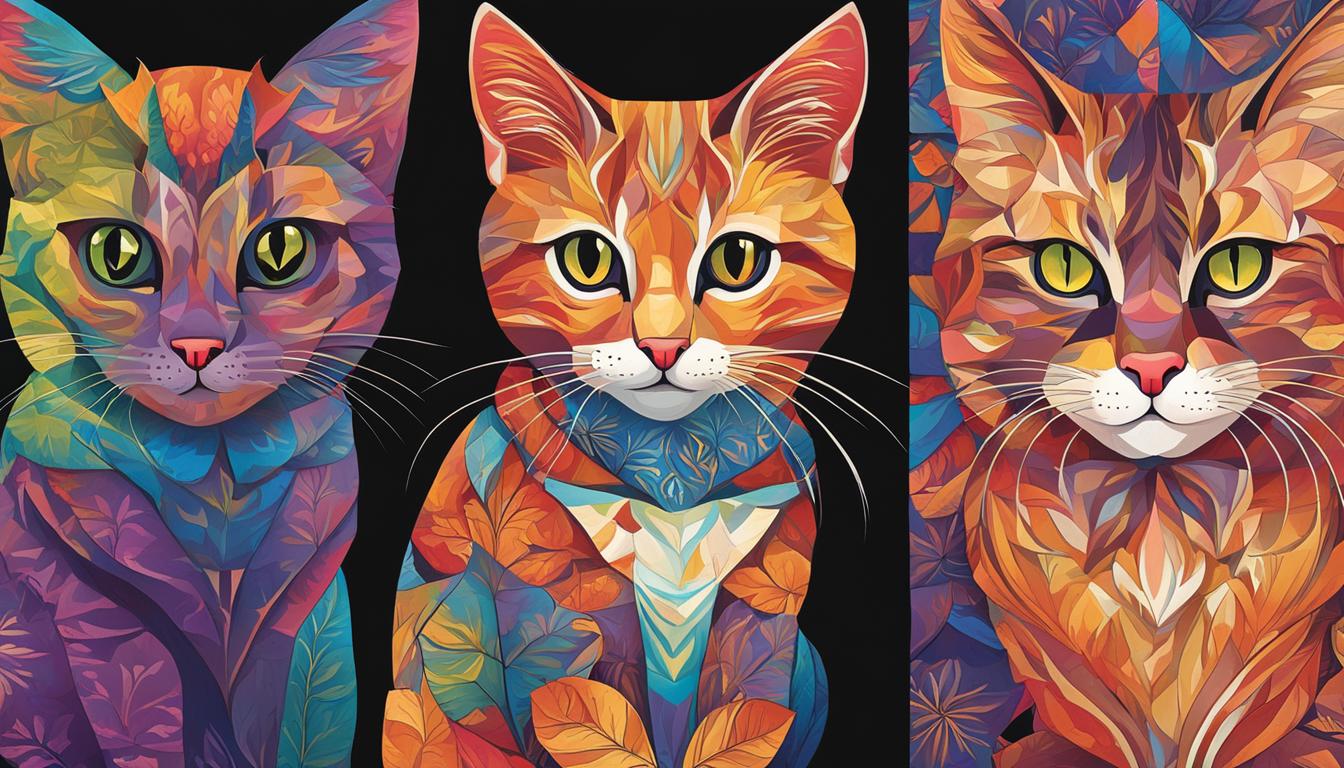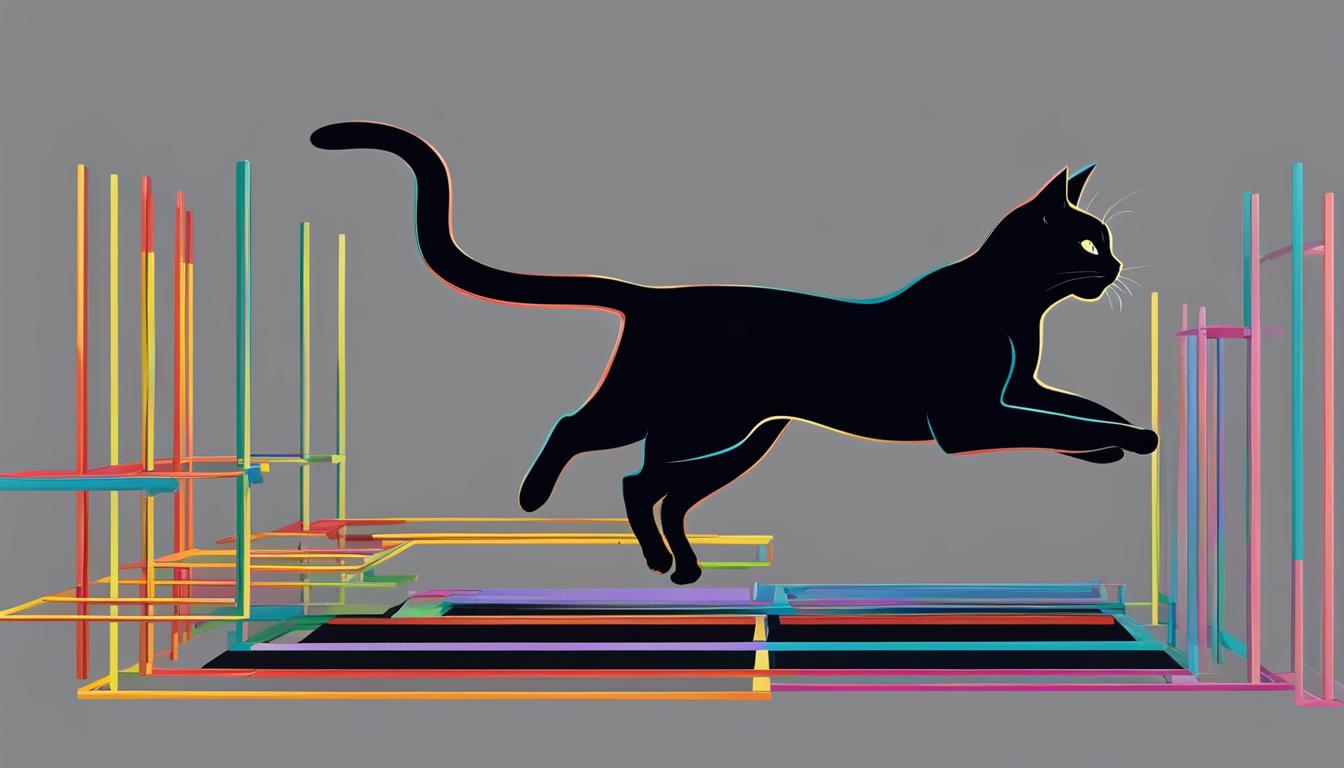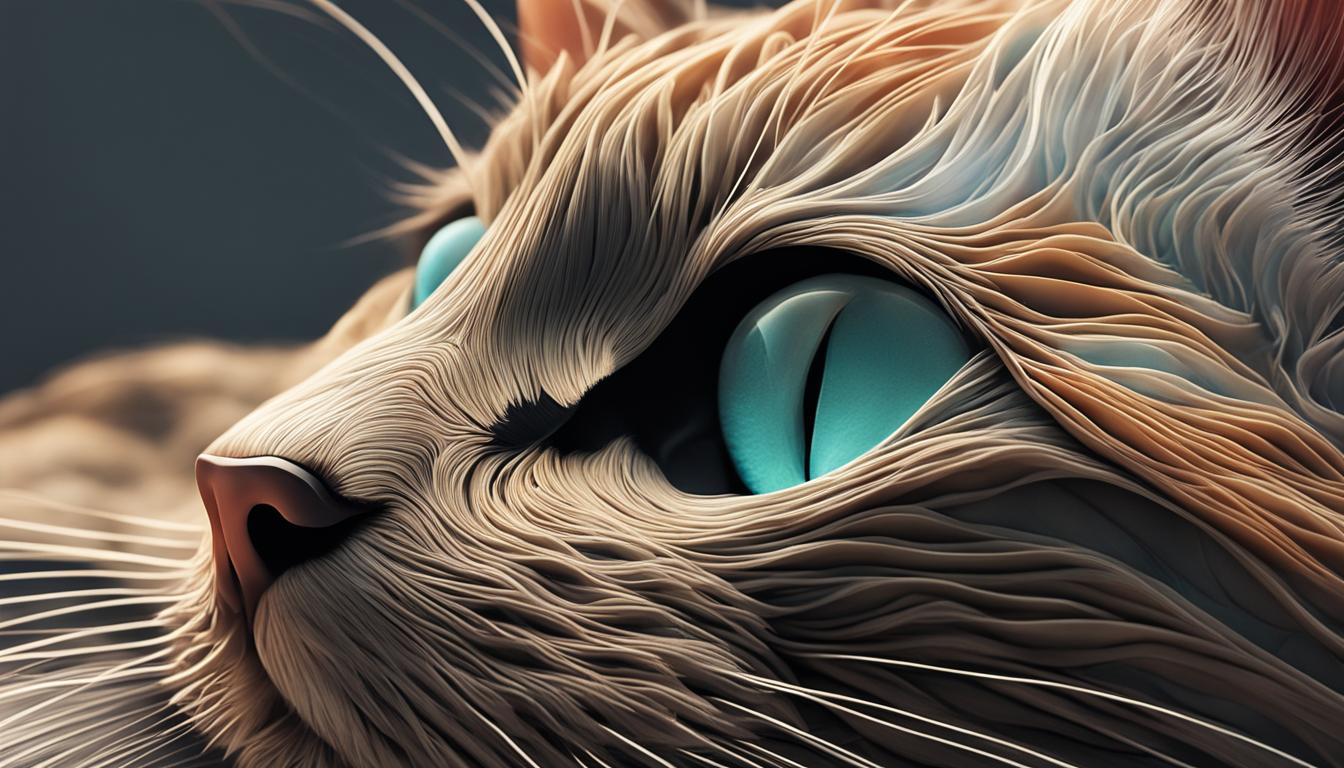Hey there, fellow cat lovers! Today, let’s dive into the fascinating world of our feline friends and explore the different stages they go through in their lives, from tiny balls of fur to wise old companions. Just like us humans, cats experience various life stages, each with its own joys and challenges. So, grab a cup of coffee, snuggle up with your kitty, and let’s embark on this enlightening journey together!
Understanding the growth and development of our cats is crucial for providing them with the care they need at each stage of their lives. From kittens bursting with energy to seniors in need of extra love, let’s equip ourselves with knowledge to ensure that our feline friends live their best lives.
Kitten (0-6 months)
During the first six months of a kitten’s life, they go through a rapid development phase both physically and mentally. This is a time of discovery and exploration, where their curiosity knows no bounds. As they grow, they begin to develop their senses and motor skills, making it essential to provide them with a safe and stimulating environment.
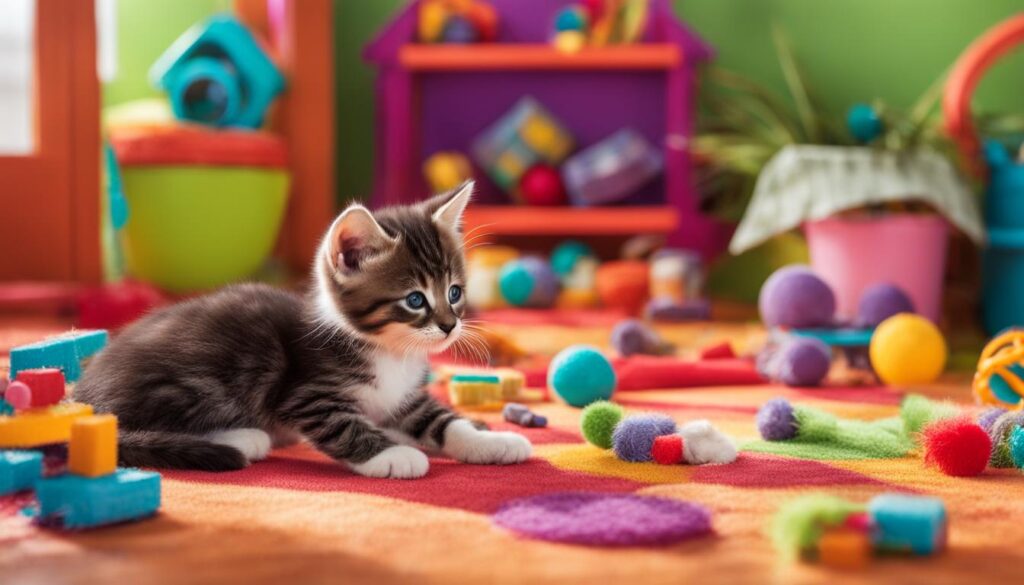
Socialization is crucial during this stage to ensure that kittens grow up to be well-adjusted and friendly cats. Introduce them to new people, animals, and environments to help them become comfortable with different situations. Handling them frequently will also help build trust and strengthen the bond between you and your furry friend.
Remember, kittens are like tiny sponges, absorbing every experience and lesson. Make sure they are exposed to positive and enriching experiences to help shape their personalities and behaviors.
The Milestones of Kitten Growth
To better understand a kitten’s growth, here are some important milestones to keep in mind:
| Milestone | Description |
|---|---|
| Teething | Kittens start losing their baby teeth around three months old, and their adult teeth begin to come in. |
| Litter Training | At around four weeks old, kittens start using a litter box. Provide a shallow box with low sides for easy access. |
| Weaning | Kittens transition from nursing to solid food between four to six weeks old. Offer them a high-quality kitten food formula. |
| Playfulness | Kittens have boundless energy and love to play. Provide them with plenty of toys and interactive playtime to keep them entertained. |
| Growth Spurts | Kittens experience rapid growth during their first six months. Ensure they have a balanced diet to support their development. |
Kittenhood is a magical time filled with curiosity, playfulness, and adorable antics. By understanding their unique needs and providing them with the care and attention they require, we can help kittens grow into healthy and happy adult cats.
Adult Cats: Nutrition and Age-Specific Behavior
When it comes to adult cats, proper nutrition plays a crucial role in their overall health and well-being. A balanced diet tailored to their age and specific needs is essential to maintain their optimal weight and prevent potential health issues. Adult cats require a combination of high-quality protein, fats, carbohydrates, vitamins, and minerals to support their active lifestyle and ensure their vitality.
Feeding your adult cat a nutritionally complete and balanced diet is essential. Look for cat food that is specifically formulated for adult cats and labeled as “complete and balanced” by regulatory agencies. It’s important to provide a combination of wet and dry food to ensure adequate hydration and dental health. Consult your veterinarian for guidance on portion sizes and feeding frequency based on your cat’s size, activity level, and individual needs.
In addition to nutrition, understanding age-specific cat behavior is key to providing them with a fulfilling and enriched environment. Adult cats may exhibit territorial behaviors, marking their territory with scratching or spraying. Providing appropriate scratching posts and interactive toys can redirect these behaviors in a positive way. Adult cats also benefit from regular playtime to keep them mentally stimulated, physically active, and prevent obesity.
Foods to Include in an Adult Cat’s Diet:
- High-quality protein sources, such as chicken, turkey, or fish
- Omega-3 fatty acids for healthy skin and coat
- Fiber-rich ingredients to support digestive health
- Taurine, an essential amino acid for heart health
- Antioxidants to support the immune system
Foods to Avoid in an Adult Cat’s Diet:
- Food high in carbohydrates and fillers
- Foods with excessive salt or artificial additives
- Chocolate and caffeine, which are toxic to cats
- Onions and garlic, which can cause anemia
- Dairy products, as many adult cats are lactose intolerant
| Age-Specific Cat Behavior | Description |
|---|---|
| Territorial Marking | Adult cats may mark their territory by scratching, rubbing, or spraying to establish their presence. Provide appropriate outlets for this behavior, such as scratching posts and designated areas for scratching. |
| Playfulness | Despite their more independent nature, adult cats still enjoy playtime. Interactive toys, puzzle feeders, and play sessions with their favorite human can keep them mentally stimulated and physically active. |
| Grooming | Adult cats spend a significant amount of time grooming themselves. Regular brushing can help prevent hairballs and maintain a healthy coat. However, excessive grooming or changes in grooming behavior may indicate an underlying health issue and should be evaluated by a veterinarian. |
Understanding the nutrition and age-specific behavior of adult cats is essential for providing them with the care they need. By offering a balanced diet and a stimulating environment, you can ensure that your adult cat thrives and enjoys a happy and healthy life.
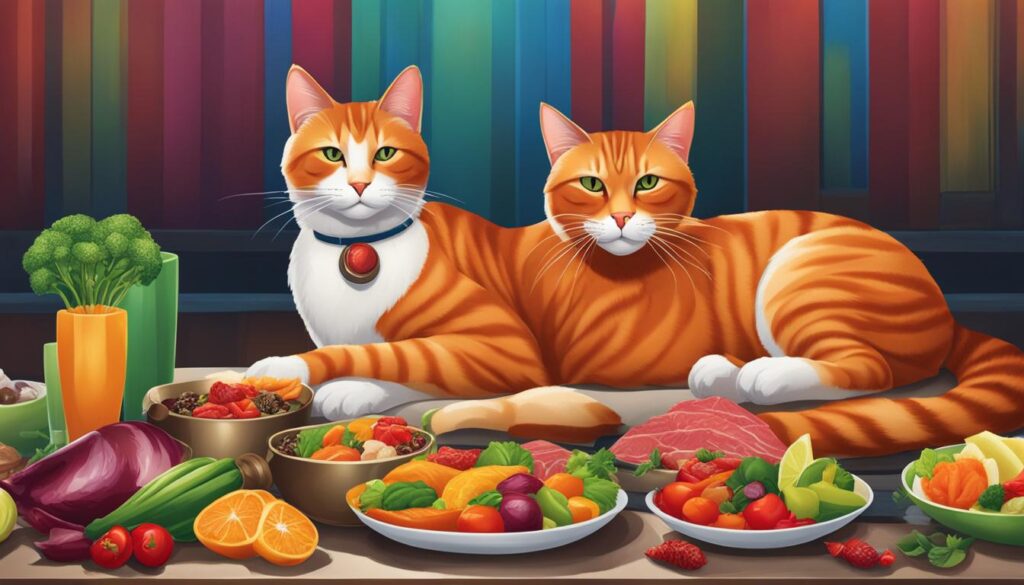
Senior Cat Care: Ensuring Health, Happiness, and Comfort
As our feline friends enter their golden years, it’s essential to provide them with the special care and attention they need. Senior cats, aged 7 years and older, may face various age-related issues, requiring a proactive approach to their health and well-being.
This section highlights some crucial aspects of senior cat care:
- Managing Age-Related Feline Diseases
- Elderly Cat Comfort Care
As senior cats age, they may experience a decline in mobility and an increased risk of age-related diseases. Regular veterinary visits play a crucial role in early detection and management of these conditions.
Proactive health screenings, including blood work and diagnostic tests, can help identify potential issues and allow for prompt intervention if needed.
In addition to medical care, providing a comfortable environment is essential for senior cats. Consider offering cozy bedding in warm areas and easy access to litter boxes to accommodate any mobility challenges they may have. Older cats may benefit from specialized diets tailored to their specific needs, such as those designed to support joint health or manage weight.
Remember, senior cats still need mental stimulation and affectionate interaction. Engaging them in low-impact play or providing interactive toys can help keep their minds sharp and maintain a healthy weight. Regular grooming sessions can also help maintain their coat’s health and provide an excellent opportunity for bonding.
By understanding the unique needs of senior cats and providing comprehensive care, we can ensure their health, happiness, and comfort during their golden years.
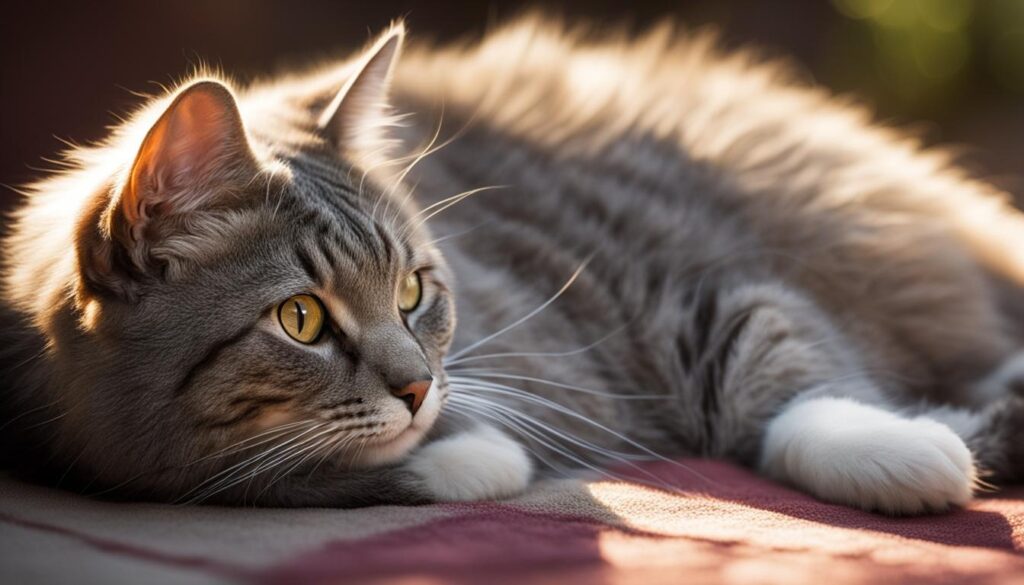
Conclusion
As I wrap up this exploration of cat life stages, I am reminded of the unique needs each stage presents. From the playful kittens to the wise senior cats, our feline friends demand our attention and care in different ways.
Caring for a cat involves understanding their life stages and providing them with the appropriate support. Whether you decide to adopt a kitten or a senior cat, knowing their specific needs is crucial for a harmonious life together.
One aspect to consider is the lifespan of different cat breeds. Some breeds have longer life expectancies, while others may have a shorter span. Understanding this can help us prepare for the journey ahead and make the most of our time with our furry companions.
Another important consideration is the transitioning of cat food with age. As cats grow and age, their dietary requirements change. It’s essential to provide them with nutrition tailored to their specific life stage to ensure their well-being and happiness.
Lastly, let’s not forget the joy of adopting senior cats. These wise elders often get overlooked, but they have so much love and wisdom to offer. By providing them with a loving home and the care they deserve, we can create a meaningful bond and make their golden years truly special.
FAQ
What are the different life stages of cats?
Cats go through three main life stages: kitten (0-6 months), adult (1-6 years), and senior (7+ years).
How should I care for a kitten?
Kittens need plenty of playtime, socialization, balanced nutrition, and regular sleep to support their growth and development.
What should I consider when caring for an adult cat?
Adult cats require proper nutrition, exercise, regular vet check-ups, and interactive playtime to maintain their health and prevent boredom.
How do I provide care for a senior cat?
Senior cats need specialized care, including regular vet visits, a comfortable environment, easy access to litter boxes, and a diet tailored to their changing needs.
What are the signs of age-related health issues in senior cats?
Senior cats may experience mobility issues, changes in appetite, and an increased risk of age-related diseases. Regular vet visits can help detect and manage these issues early on.
Should I consider adopting a senior cat?
Yes! Senior cats can bring immense joy and companionship. They often have lower energy levels and are more relaxed, making them a great choice for families or individuals looking for a calm and loving pet.
How long do cats typically live?
On average, cats live for around 15 years, but some breeds can live into their early 20s with proper care.
How can I transition my cat’s food as they age?
Gradually introduce new food by mixing it with their current food over a period of a few weeks. This helps prevent digestive upset and allows them to adjust to the new diet.

